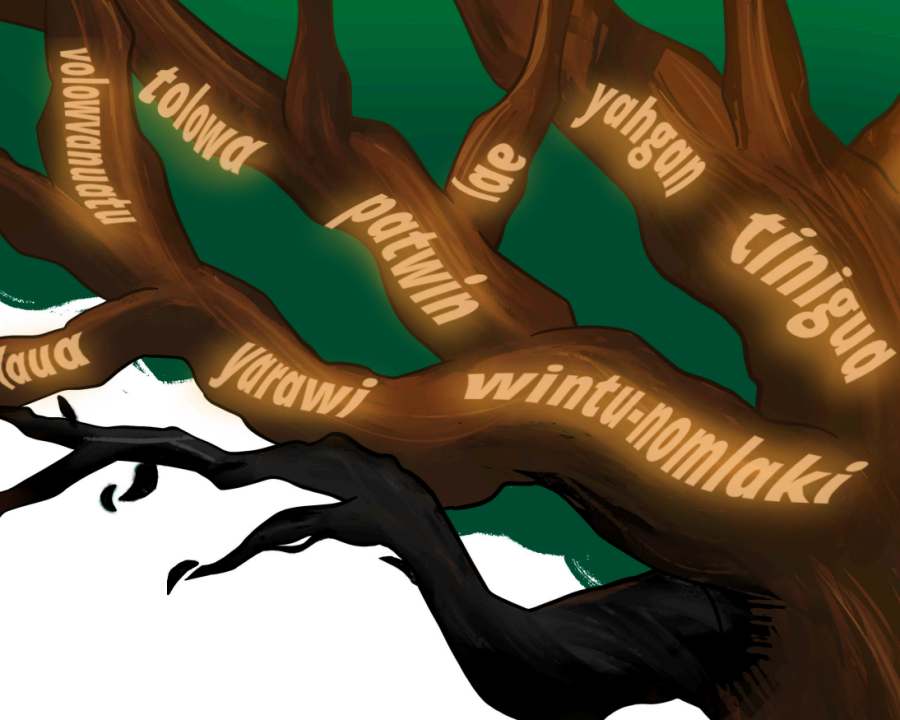Many languages may be speaking their last words
May 8, 2023
As English continues to globalize and be prioritized over other languages, language isolates are left behind. Many communities lose a part of their culture as younger generations forfeit a link to their heritage and identity.
“Languages tell you about culture and act as the memory of older generations,” freshman and Shanghainese speaker Cindy Tao said.
There are over 7,000 recorded languages spoken in the world today, about 35% of them being endangered. A language dies when its last known speaker dies. According to the Language Conservancy, nine languages die every year.
Some languages die out quickly when small communities are wiped out by disasters. El Salvadoran speakers of the indigenous Lenca and Cacaopera languages abandoned their languages to avoid being identified as natives after a widespread massacre in 1932. The Dunser language of the Papua region in Indonesia has only a handful of remaining speakers after flooding in 2010 devastated the Dusner village.
“The Cherokee tribe had a written language which was wiped out in an attempt to Americanize,” Clark said.
In the digitalized age, online or televised content tends to cater to society’s most prominent languages. Children in multilingual homes are often exposed to the most dominant language media from their area, making them more accustomed to the dominant languages during a crucial age of language development. As this content most often does not favor indigenous languages, populations lose familiarity with them, especially with the most integral parts such as colloquialisms, making it harder to pick up native languages later.
Colonialism is one of the leading causes of linguistic endangerment in areas with large indigenous populations. Historical emphasis on assimilation and suppression of indigenous languages promoted attitudes of cultural superiority, as proficiency in European languages was viewed as prestigious and could further oneself in a colonized society.
With the globalization of English came English schools, using styles of instruction in English throughout Asia and non-English speaking European countries. Younger generations begin to lose proficiency in their native dialects as English is placed at a higher importance. Moreover, in many metropolitan areas where English is widely spoken, younger generations tend to stop using languages indigenous to the area, decreasing proficiency overall.
“Historically, languages have really been a political issue because they’re such a powerful tool,” Clark said.
Immigrants often prioritize learning English to bring more economic success to future generations. Many second-generation U.S. immigrants do not speak their native language fluently because it is more economically and culturally beneficial to speak English. However, elderly speakers of a language are often left behind in rural communities, holding on to the fleeting traces of the language as others begin to forget it.
“It’s sad because we can see languages disappearing for newer generations,” Tao said.
Preservationists have been working to revive endangered languages as these languages are closely linked with regional or ethnic identity. For instance, Hebrew died out as a colloquial language in the 2nd century but was revived in the 19th-20th century. The language was continued through religious mediums as well as used in scholarships causing it to come back in prevalence. Now, it is the first language for many in Jewish countries.
Languages that are considered “dead language” are often commonplace within academia. Many high schools and higher education institutions offer classical languages such as Latin, Greek and Sanskrit despite the former two not having any native speakers. The efforts have proven influential in reinvigorating these languages as there are roughly 25,000 native Sanskrit speakers and such education promotes the culture and furthers the language into future generations.
Preserving languages maintains long-standing cultures. Spoken words are linked with values and traditions which can be passed down through generations, which enable speakers to connect with older generations. As speaking languages connect a person to their nation’s history, it also gives the speaker a sense of personal identity. When languages are lost, a part of a culture is lost.
“You lose the language, the history and an understanding of the people,” Clark said. “Then the whole world just becomes too homogenized. The diversity makes a richer world.”




































































